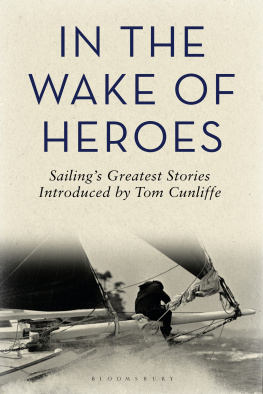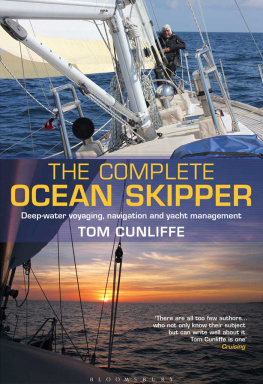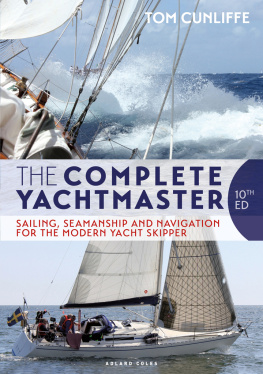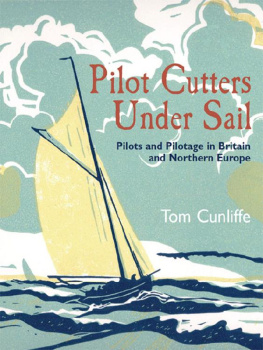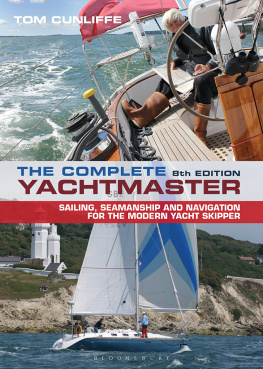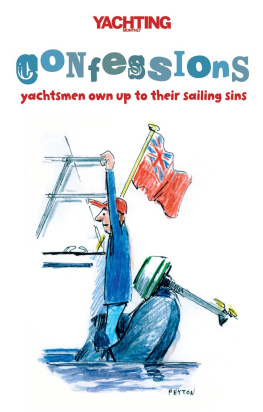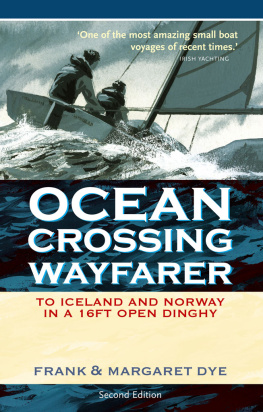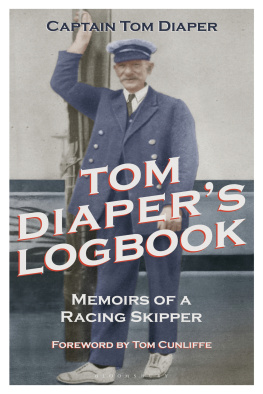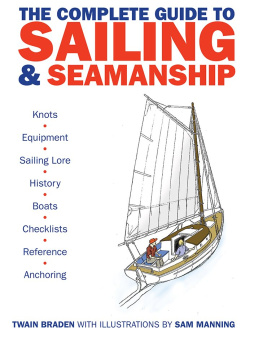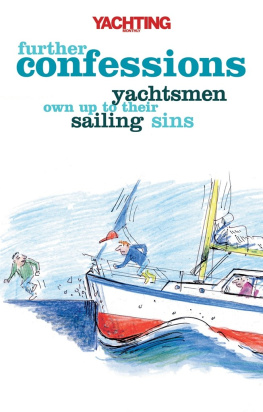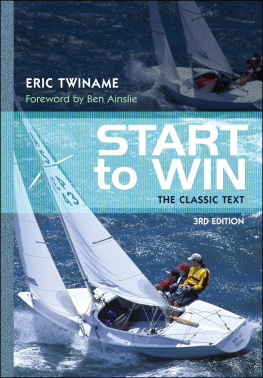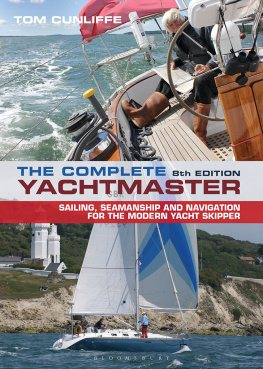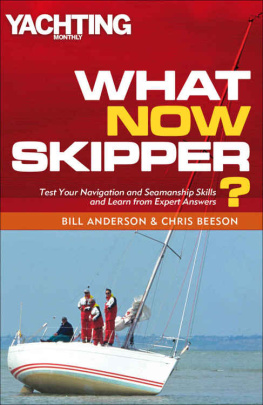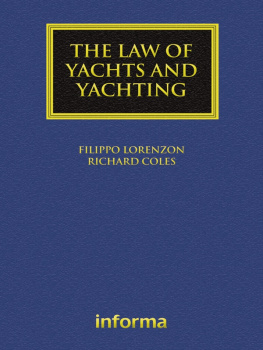IN THE WAKE OF HEROES
IN THE WAKE OF HEROES
Introduced by Tom Cunliffe

CONTENTS
It was at the London Boat Show in January 2004 that my friend Andrew Bray, then editor of Yachting World magazine, proposed an idea for a regular feature built around nautical literature. The original plan was to concentrate on exceptional feats of seamanship, and Andrew anticipated the series might run to half a dozen articles. I was delighted with this opportunity, because my study was already lined with a wide-ranging library of maritime titles from which I could draw. As the months passed we began diverging from the foundation plan and started to include passages selected as much for their literary value as for the more obvious attractions of 40ft seas, mutiny and tumbling spars. A year later, Andrew told me that the series was proving popular and asked if we were in danger of running out of material. By then, it was clear that this seemed an unlikely contingency within either of our lifetimes, and so Great Seamanship set course for the indefinite future. Those of us who go down to the sea, whether for leisure, war or commerce, are incomparably blessed with good reading matter. Indeed, I believe that no other sport or form of transport is so richly endowed.
Prodigal antiquarian book-buying had long been a diversion enjoyed by my wife, Ros. Now that she had direct motivation to provide licence for this hitherto private vice, she was to become a well-known figure prowling the dusty corners of coastal bookstores. Today, her online presence haunts their websites, while our own shelves, once merely well stocked, groan under the weight of beautifully written works where the west winds blow, the trades hum, grass skirts sway under moonlit palms and desperate men battle against ice and gale to save not only their ships, but their immortal souls as well.
The idea for this book came from Liz Multon at Adlard Coles Nautical. Why not make a compendium of all the best books drawn from the Great Seamanship columns, she said, for readers to enjoy at their own speed? The plan was so sound I couldnt imagine why we hadnt thought of it before. As I worked through the 120-odd available titles, I realised that, with a few notable exceptions, the best came from before the Second World War. These were the books that sent me to sea back in the late 1960s, when a career addressing British juries threatened to keep my feet dry for a lifetime. Alan Villiers started me off, but it was Erling Tambs who finished the job. If he could buy a fine old boat for so little money and sail away with less, then so could I. And in due course, that is exactly what I did. Many could say the same.
These books are invariably well written, often with that dry brand of humour that pre-dates the current fashion for unloading ones emotions onto anyone who will listen. A theme of self-sufficiency runs through the stories like a golden thread. For the folk of this generation who chose to go deep-sea, the guarantee of salvation did not lie at the touch of an electronic button. They were obliged to fend for themselves with what they had and, if the ship sank, then in the words of the great Colonel HG Hasler, many would have little choice but to drown like gentlemen. Their lives were on the line. Such is the stuff of real adventure.
For this book, I have omitted most of what one might describe as mainstream accounts by such world-famous seamen as Sir Robin Knox-Johnston and Captain Joshua Slocum. This is simply because their writings are so readily available. Some of what a reader will find in the following pages will prove unknown to many. Certain of the books have been elusive to track down. Occasional pages have been culled not from a published book at all, but from a club journal or the yachting press.
Although I have steered away from the occasional rollicking story from the square-riggers that have leavened the stream of material in the magazine, the chapters remain as diverse in mood as the sea itself. To try and create some sort of order from this miscellany, the book is divided into sections. The definitions of what these may be are loose, particularly when it comes to Emergency and Working Boats, but while I may not have entirely succeeded, at least I have tried.
In the context of the 21st century it may seem unfashionable to award women writers their own section, but just as it can be unwise to judge the morality of a century ago by the mores of today, it should be understood that when these ladies put pen to paper, the sea was very much the realm of men. Women were a rarity on boats. Those prepared to leave their perspective to posterity in book form were veritable pioneers. Therefore, we honour them with a division to themselves, and fascinating reading it makes.
Each chapter is preceded by a paragraph or two, which I hope will explain something of the author and the circumstances of what follows. Where the account is a reconstruction taken from different areas of a book, I have inserted a sentence or two to tie together what might otherwise be disjointed extracts. Occasionally I have edited the core text to fit the current medium. All this is to give the reader easier access to the wild and wonderful world that follows.
Finally, I would advise anyone who enjoys a particular passage to go out, find an original copy of the book itself and dive in. I am currently rereading Henry Plummer, the New Englander who sailed a 23ft sloop to Florida in winter with his son and his cat in 191213. The wry, self-effacing humour is pure Yankee. Last night, tucked up snugly in bed around midnight, I was with Henry when he piled up on the frozen mud in a snowbound creek somewhere in Carolina. His comments were so pithy that I burst out laughing, which woke my wife. Had I been reading todays paper I would have suffered a major earful for my pains. When I explained that it was only Captain Plummer up to his tricks again she turned over with a smile and went back to dreaming about which website to plunder for new treasures in the morning. The supply never seems to end.
Tom Cunliffe
www.tomcunliffe.com






PAID HAND
Tom Diaper
Tom Diapers Log
Robert Ross 1950

Little is written about the lives of the paid hands on yachts from the Golden Age before the Second World War. Tom Diapers Log was first published in 1950 from a lightly edited handwritten manuscript dedicated to his granddaughter Doreen, For her kindness to me. It traces his life from his birth as a fisherman/yacht hands son in 1867, until 1939. He probably wrote the memoir in 1947, two years before he finally let slip his cable. This remarkable account tells of hard times looking for work, glory days racing against the Kaiser at Kiel, and finally finding a quiet, steady job with a considerate owner.
Next page
